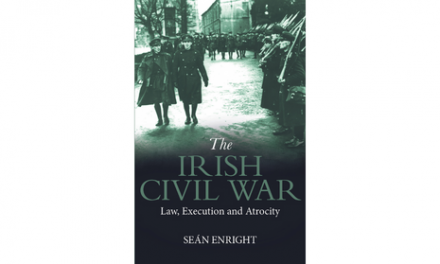Reviewed by Joanna Hardy-Susskind
In his day job, Barnaby Jameson KC deals with terror. He sees humanity at its worst when prosecuting those who plot, fund, or undertake extremist violence.
Jameson’s debut novel, Codename: Madeleine, is inspired by the real events of wartime Europe. Its pages contain the ugliest examples of human cruelty, driven by extreme ideology. But, somehow, that overriding cruelty is not solely what remains with the reader. This is a confident, beautiful plot laden with heroism and with courage.
The book traverses land and time at pace. From lush Indian rivers to dusty Chilean POW cells; from grey wartime Paris to the treacherous waters of the German U-boats. No book authored by a barrister would be complete without a short trip to London’s Old Bailey, just for good measure.

Our ensemble cast of characters begin in disparate lands, on separate journeys. A talented undercover radio transmitter using her musical skills as a harpist to tap Morse code. A soldier wounded in both body and mind. A high-ranking German officer of uncertain allegiances. A barrister. Well, of course.
Slowly, their paths begin to cross, weave and, occasionally, unite. Sometimes by place, sometimes by time, and often by chance. Bumping into one character in a chapter about another feels like meeting an old acquaintance. It is expertly done.
This is a story of their resistance in various guises – against extremism, war, fear and, at times, themselves. We weep with the wounded, hold our breath with the ambushed and wince with the heartbroken. The reader does well to suppress a cheer when the Gestapo are outwitted or outrun. At times, it is a classic adventure with Houdini-esque escapes, hiding places and Hollywood chases. Other pages bear the hallmarks of a romance novel, with the heartache of torn lovers keenly felt. Love, as a theme, is not limited to sweethearts. The bonds between parent and child, between siblings, are writ large. There are hints of the mystical and of faith, richly described. Finally, in assessing the many betrayals, traces of a whodunnit can be detected.
The plot is well crafted through these competing styles and the book luxuriously long. It is, however, the writing that makes this work sing.
These are not the factual words of measured, sedate counsel opening the case for the prosecution. The language is poetic and, at times, positively opulent. The places and people are described with a richness that makes them seem whole. There is a pace and a melody to this book. I wondered, halfway, if the tempo was a nod to the musicality of our harpist protagonist and the percussion of her Morse code. Deliberate or not: the rhythm for the reader is beautiful and this debut is a truly accomplished one.
Joanna Hardy-Susskind is a barrister at Red Lion Chambers. She specialises in defending those accused of serious crime. Joanna speaks and writes about the criminal justice system.


